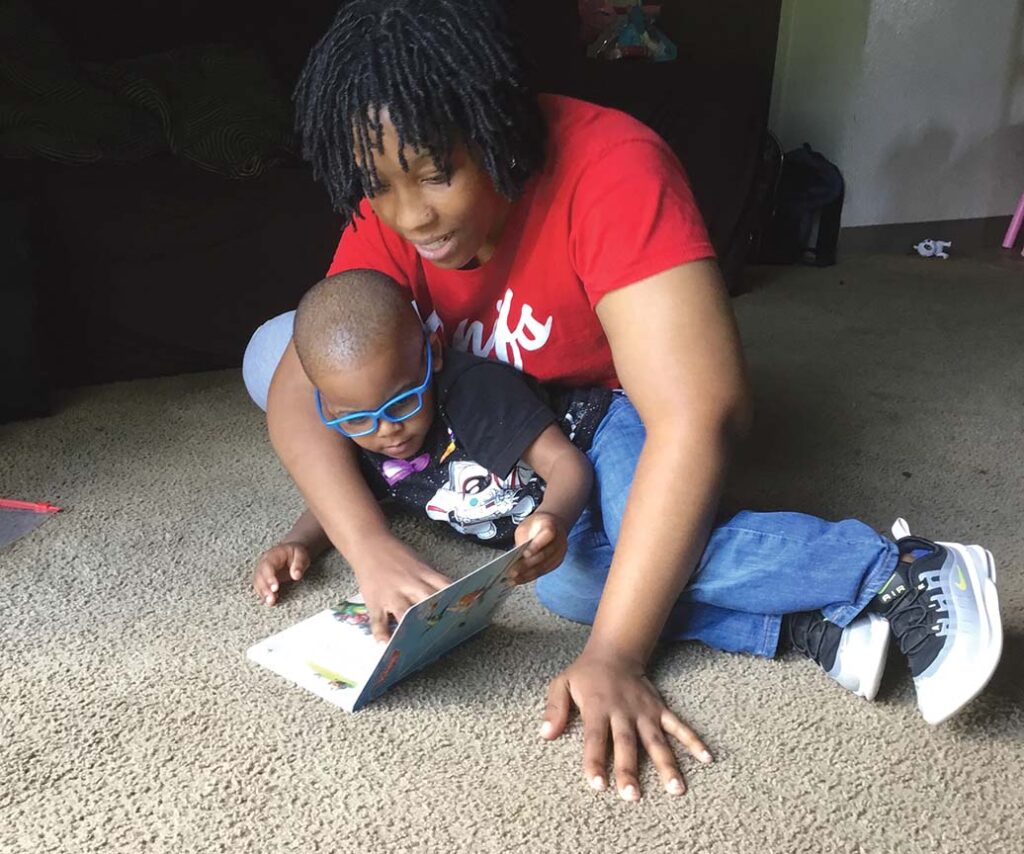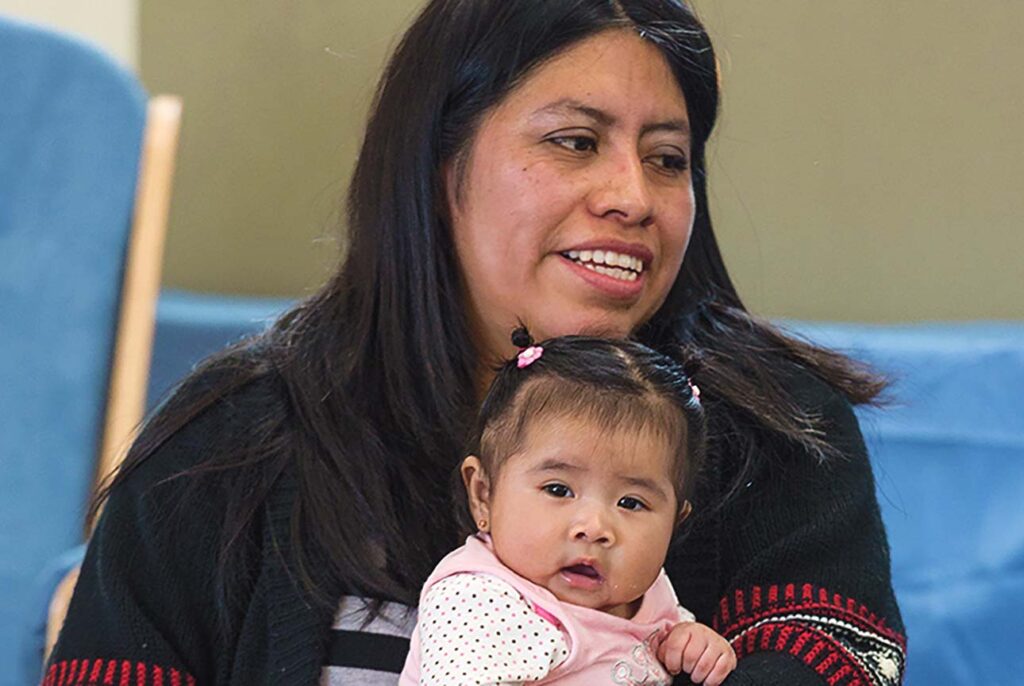
By EllieAna Hale
The Family Conservancy (TFC) has continually created sustainable education, and resource programs to provide equitable opportunities for all children in Missouri with a focus on Clay, Platte or Jackson counties.
TFC has brought its services straight to the homes of those who need them most through a program called Head Start Home-Based. The program has touched the homes of local communities, and has met families where they are to provide exemplary support, and education assistance.
Head Start Home-Based has allowed for much-needed resources such as social services, mental and physical health assistance, financial assistance, education services, curriculum, and more to be provided within the home.
With the specific targeted age group prenatal to age five, Head Start Home-Based allows for the families and parents to gain the skills, and resources to become the teacher, and the main support system within the home itself.

The program itself is different from most headstart programs. Most headstart education programs cut off at age three, and only provide basic curriculum services, while Home-Based provides not only a family-based curriculum but also connects the family to an assorted array of community resources that will allow the family to be safe, healthy, and connected.
“We come in and provide educational services,” said Fran Spearman, TFC Head Start Home-Based Manager. “We are a liaison between the community and provide those bridges between family and community.”
Home-based specialists come into the home once a week for a 90-minute session to teach the family, and parents how to best implement curriculum and education services within of early education. Home-based provides up to 46 visits a year for each family with specialists and translators covering eleven different languages. They are seeking to provide every family and every culture an opportunity to learn and thrive.
During these sessions, Home-Based additionally provides resources to the family for their needs ranging from rent assistance to providing resources for food banks and Medicaid. Outside of the 90-minute weekly sessions, there is also an array of community events that allow for socialization for the family and the child.
“There’s learning every-where,” Spearman said.
The program ties together the family and implements a family-based model that connects all aspects of education within the home, and uses daily used items as opportunities for learning.
“It’s not just for the child in the program,” Spearman said. “This is what I like about Home Base. It’s about the family as a whole. We individualize it based on their needs and their moments.”

Home-based specializes in providing assistance for families to reach their individualized goals for success, and meets every family where they are currently. The program specializes in normalizing daily life, such as cooking, doing dishes, or reading a menu, is an opportunity for education and an opportunity for connection. Specialists within the program emphasize that no matter the current situation the family is experiencing, there is an opportunity for education and opportunities for success.
“Home is the first learning ground and they’re still learning opportunities and they’re still ways to bridge those moments,” Spearman said. “And to build that connection with your child is what you want. This is your desired outcome. And so making sure that they’re ready for kindergarten and ready for the next stage and provide those services.”
Home-based encourages all families to use what they have to facilitate success. With a large caseload of their clientele being immigrants or refugees, the program inspires families to utilize their culture and utilize their non-western world understanding to better educate and advocate for their children as they see fit.
“We really encourage families to utilize their culture,” Spearman said. “Don’t do away with your culture because we are over here in the Western civilization of the United States, it’s okay to infuse your culture and not to do away with your culture, but rather embrace it. We’re open and we’re willing to help you infuse and connect and stay connected to your home language, your culture.”
Early education resources and Home-Based is seeking to provide this understanding of the importance of education while also providing the needed resources outside of a basic curriculum to cultivate success for the entirety of the family.

“From the moment that we are really in utero…we’re learning. We’re growing. Education is lifelong, it’s not just the school,” Spearman said.
The program’s main incentive is to constantly and consistently provide resources that these families may not find otherwise, while also educating families on how they can find support in their own community.
“Most of my families and my caseload live in the Northeast area and a lot of people we help do not have any idea about resources or how to provide services and their care and how to request their services. Our organization provides those resources they need. We provide food, clothing, and financial assistance. If a family has everything they need, then there are going to be happy kids, healthy kids, and will have everything they need.”
The eligibility for the pro-gram includes the following:
- Live in one of the following Missouri counties: Clay, Platte or Jackson.
- Be income-eligible, receiving public assistance (TANF or SSI) or experiencing homelessness.
- Have a child with a diagnosed disability.
- Children in foster care placements are eligible.
Families interested in Home-Based Services can apply for the program by visiting tfc.org.
“Education is life,” Spear-man said. “It’s the very beginning of life. Because it’s learning and we learn and we grow from the time we are fertilized until the time we depart this earth.”











